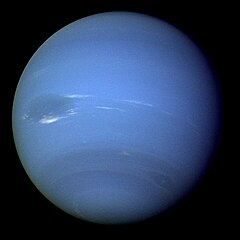The past week was a remarkable one for planetary science. Not only we had a probe arriving to an asteroid but also the solar family welcomed a new member.
In one side we have that the probe Dawn arrived to asteroid Vesta and is now in orbit around it. The story behind the whole mission is quite interesting. Actually the mission was cancelled many times and was only successful after the contractor (Orbital Sciences Corporation) offered to build the probe at cost. I certainly don't know of any other cases where the contractor ends up offering a whole probe at cost.
Vesta as seen from Dawn after it entered orbit.
The scientific program of this probe is quite ambitious. It plans to visit two of the biggest members of the asteroid belt, Vesta and Ceres, which were chosen as representative of "young" and "evolved" asteroids. Additionally, Vesta is (allegedly) the source of many of the micrometeorites that produce shooting stars in the sky which made it a particularly attractive target of study. This is also the first time a probe enters around the orbit of two objects. In previous "tours" like the Voyager missions the observations were made during flyby's. A similar option was considered a few years ago for Cassini with a potential transfer to Uranus which would had required a 20+ year cruise time. Eventually, that option was discarded and it was decided to send Cassini in a collision route with Saturn.
In a different development, it turns out that Pluto (the good old planet, now dwarf planet) system has at least three moons. This was spotted with the Hubble Space Telescope and the new satellite will be most likely studied by the probe New Horizons during its expected flyby of the system.
The Pluto system as shown by latest Hubble observations.
If you add all this with the results that are being announced from EPS-HEP there is no doubt that the past week has been one of the most exciting in a long time.


